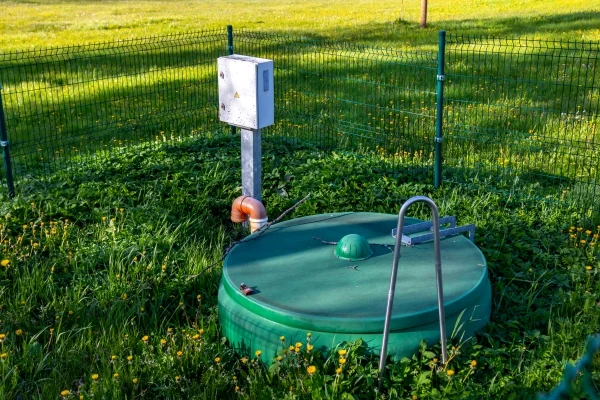
For homeowners with properties that aren’t connected to a municipal waste treatment system, figuring out what waste treatment system to use for your home can be a challenge. There are numerous different septic systems to choose from. While we love choice, scientific research has proven that having too many options makes the decision harder than it should be. Allow us to help you narrow your search by defining the main waste treatment methods available.
What Types of Septic Systems Are There?
When it comes to choosing a new septic tank, the wide variety can be overwhelming. It may seem like there is simply too much to choose from. But if you can identify the method of treatment that suits your home, the selection will narrow itself for you.
Let’s take a closer look at the three main septic treatment methods.
-
Traditional Septic System. This type of system involves a septic tank and a drain field. The waste flows into the tank where solids, fats, oils, and grease are separated from the water. The water then flows to the drain field where it’s naturally filtered through layers of rocks and sand, or filtration chambers before returning to the groundwater.
Because the drain field is an essential part of this system, it can be a good choice for properties with plenty of space and healthy soil to be able to treat the wastewater before it re-enters the water table.
-
Advanced Secondary Treatment Septic System. The advanced system includes the septic tank where water and solids are separated. Then it takes the treatment a step further. Using an aeration chamber and other biological filtration methods, the system removes soluble particles from the water.
Because most of the treatment happens in the system rather than in the soil, the advanced system is a good choice for properties that don’t have adequate space or healthy soil for the drain field.
-
Tertiary Purification Treatment Septic System. The tertiary system includes the primary tank to separate insoluble particles, the aeration chamber to remove soluble particles, and finishes the process with treatments such as UV disinfection, reverse osmosis, biological filtering, and carbon absorption to eliminate any remaining harmful bacteria, viruses, or microorganisms.
This is the most thorough treatment system and is ideal for releasing water directly into the environment without fear of contamination.
How to Choose the Right Septic System for Your Home
With a basic understanding of the different methods of waste treatment, you can evaluate your home and make your decision based on its septic needs.
-
Size: The first thing you will want to determine is the size of tank you need. Septic tank requirements are typically based on the number of rooms in a house or the expected usage. Commonly, homes with five or fewer bedrooms need 3180-litre tanks. Larger homes would want 1820 liters for general household use and an additional 270 liters per bedroom.
However, it is important to note that we don’t size or recommend a specific septic system. It’s best to consult with a licensed designer or engineer who services your area to determine the specific size system you need. Since every region/area has their own code requirements, a local designer/engineer is the safest way to go.
-
Land. If you are considering a traditional septic system, you will need to evaluate if you have the appropriate space to set up a drain field. You will also need to test whether your soil is healthy enough to process the wastewater.
-
Proximity to water wells or wildlife: Both the traditional system and the advanced system release water before it’s fully purified. If the wastewater runs into a water source before the ground can finish filtering off the bacteria, it can cause contamination. To avoid this, assess if the septic is too close to water wells, rivers, or the water table. If any of these bodies of water are too close to your septic system, you will want a tertiary purification system to completely treat the water and know that it’s made safe for the environment.
-
Topography: Most setups use gravity to flow the wastewater down to the drain field. But, depending on your landscape, you may need a pump to move the water up from the tank into a drain field that has a higher elevation than the septic tank.
Related Topic: How Long Should Septic Systems Last?
Need Help Choosing the Right System?
Choosing a septic system that will serve your family for decades is a big decision. By identifying the treatment method that works best for you, you can narrow your options to make a better-informed choice. When you’re ready to install or need maintenance on your septic system, the local plumbing professionals at Mr. Rooter Plumbing are ready to help. Give us a call today or request a job estimate online.
A final note: Currently in some regions, if you install an advanced system or Tertiary purification you will need a maintenance agreement with a supplier who has been approved by the manufacturer for yearly maintenance.

